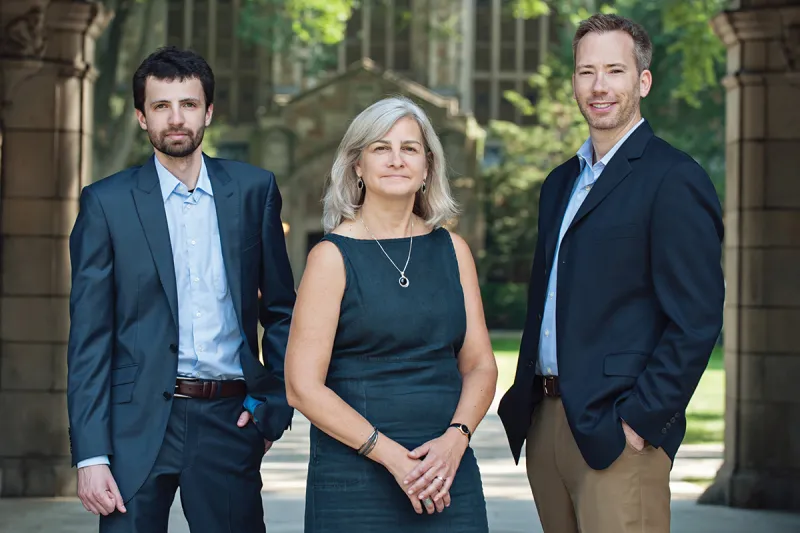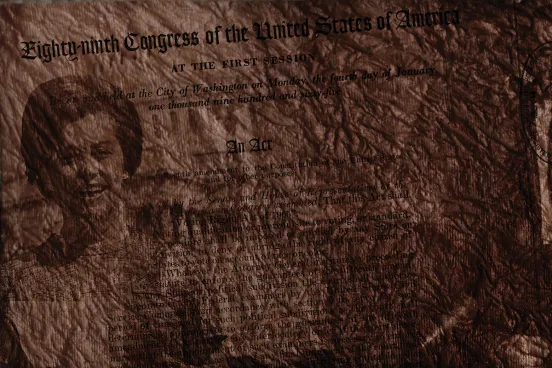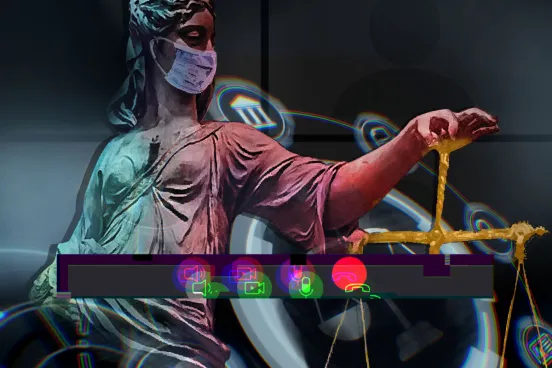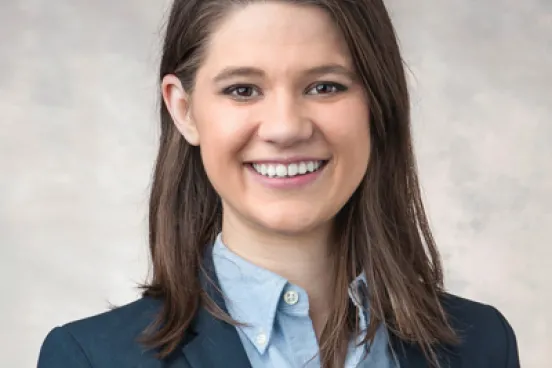
What if your day in court didn’t have to be in court?
That’s the idea that led Michigan Law Professor J.J. Prescott and Ben Gubernick, ’11, his former student, to invent a first-of-its-kind technology that helps people who have been charged with minor offenses interact with courts online, at any time of day, without needing to hire an attorney.
The software provides a way for litigants with issues ranging from unpaid fines to minor criminal or civil infractions, including traffic tickets, to communicate directly with judges and prosecutors to find mutually agreeable ways to resolve their cases.
“When you look at how many cases courts process, you realize online interaction and resolution is the next frontier. Courts have so much potential to influence people’s lives for the better,” Prescott says. “The challenge is removing barriers to access while making the most of judicial and prosecutorial wisdom and experience. We wanted to make sure the software wouldn’t interfere with everything good that courts are already doing.”
Many people’s jobs don’t give them the flexibility to go to court during regular business hours, Prescott points out. And appearing in court for a minor infraction is time-consuming for judges, prosecutors, and the person charged with an infraction. “A typical scenario is that you wait four hours to see someone and you exchange five words,” he says.
While the online technology saves time for everyone involved, it conversely gives judges and prosecutors more time to learn about the person before making a ruling. Is the defendant, say, very likely or only somewhat likely to get another speeding ticket in the next year? “In the virtual environment, we can give prosecutors and judges more information than they would normally have within their reach about a person, and it can inform their decision making,” Gubernick says.
In-person interaction, of course, remains necessary for a lot of work courts do, Gubernick says. “This technology targets only those cases where online interaction can be faster, fairer, and less costly for everyone involved.
“Our goal is really to increase access to justice.”
“Proof that entrepreneurial ideas are flourishing at Michigan Law”
The project is part of the Global Challenges arm of U-M’s Third Century Initiative, a $50 million, five-year program that is leveraging the University’s interdisciplinary expertise to tackle some of society’s most pressing problems—while also creating learning opportunities for students.
The technology is being piloted at the 14A District Court in Michigan’s Washtenaw County and the 74th District Court in Bay County. Response from the technology’s users has been positive. “This system is working so well for our court that I would like to see it expanded to all the other courts,” says Thomas Truesdell, magistrate of 14A District Court and a board member of the Michigan Association of District Court Magistrates.
With funding through U-M’s Third Century Initiative in place for the next two years, Prescott’s team is preparing to scale the technology. However, the team is thinking far beyond the next few years. Prescott already has worked with U-M Technology Transfer to create Court Innovations Inc., a startup that will provide support and maintenance for the software during the project and grow the business opportunities generated going forward.
The developers and U-M believe the technology can go national. “Court Innovations was founded to ensure post-project sustainability,” says MJ Cartwright, the company’s CEO. “Our job over the next two years is to work with courts and state government groups to lay the foundation for the technology’s complete transition from U-M-based research and development into a commercial solution that can continue to scale and grow in Michigan and across the nation.”
Ken Nisbet, associate vice president for research at U-M Technology Transfer, says the company has leveraged Tech Transfer’s Venture Center, including the Venture Accelerator, to create a compelling value proposition to improve the court system. “This new venture is proof,” Nisbet says, “that entrepreneurial ideas are flourishing at Michigan Law.”
Prescott is pleased with the support from the Law School and the University as a whole. “At the Law School, we’re really expanding in the entrepreneurial arena,” Prescott says. “The great thing about being at a major research institution like U-M is that we are able to work closely with top people in all of the fields that matter to the success of the project—the statistics department, the Ross School of Business, the School of Information, the Ford School of Public Policy—about data modeling, increasing court efficiency, improving the user experience, and ensuring that litigants come away from the process understanding it and feeling that they’ve been fairly treated. It’s great to see the University not just supporting the hard sciences but also broadly interdisciplinary efforts like ours that emerge from the social sciences.”
Gubernick says the entrepreneurial aspects attracted him to the project. “I liked the idea of finding a solution to a problem in the real world,” he says. “And, really, that’s what entrepreneurship is all about—recognizing a problem, and finding a solution that no one has thought of.”






![The Tech [R]evolution in Law The Tech [R]evolution in Law](/sites/default/files/styles/teaser/public/2023-03/The-Tech-%5BR%5Devolution-in-Law.jpg.webp?itok=Obrll94p)
